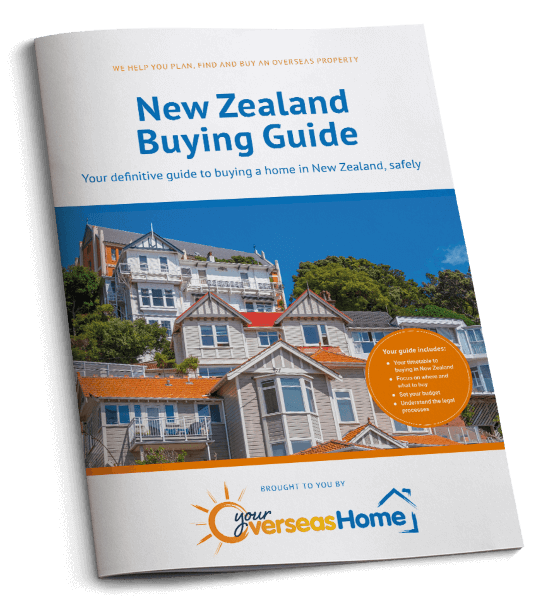Maintaining your finances after you move
The financial considerations of an international property purchase don’t just stop the minute you are in possession of the keys. Here we outline the issues you will need to address in order to manage your finances effectively once you’ve moved in.
Tax planning
To ensure you are aware of all of your tax liabilities it is advisable to consult a qualified tax lawyer and independent financial advisor post-purchase.
You’ll be pleased to hear that the average monthly disposable salary is over 8% higher in New Zealand compared to the UK.
You will be considered a resident for tax purposes if you spend more than 183 days of a year in New Zealand. When you first arrive, however, you may qualify as a transitional tax resident. This temporary tax exemption is available to those who qualify as a tax resident in New Zealand on or after 1 April 2006, and are new migrants who have not been resident for tax purposes in New Zealand for at least 10 years prior to qualifying as a tax resident. If eligible this will give you exemptions from paying tax on any income earned outside New Zealand for four years, as long as it isn’t related to work you are doing while in the country. This means income from a UK pension during this period is not taxable in New Zealand.
There is no tax-free income allowance in New Zealand – everyone is taxed on all of their earnings; the starting rate of tax is 10.5%.
Claiming your pension in New Zealand
You can draw a UK state pension but you will not be entitled to the annual increases. Your pension will be frozen either at the rate it reaches when you move, if you are already drawing it, or at the rate it is when you first qualify, if by that point you are already living in New Zealand. If you qualify for the New Zealand state pension, known as Superannuation, the value of your UK state pension will be subtracted from your pay-out.

The most effective way to transfer your UK pension is to set up a Regular Payments Plan with Smart Currency Exchange
For most people receiving a fixed income such as a pension, knowing how much they will receive each month is essential to effectively planning their monthly expenditure. The most efficient and secure way to transfer your UK pension overseas is to set up a Regular Payments Plan with Smart Currency Exchange. This automated exchange tool allows you to set-up payments to occur at a frequency that suits you; ensuring your money is debited from your account, exchanged into your currency of choice and sent to the required recipient overseas, in accordance with your specified schedule. As well as offering convenience, the regular payment plan service allows you to fix a current favourable exchange rate using a forward contract, so you know the exact amount of money that is leaving your account and arriving in another, with each payment – eliminating the risk of negative rate fluctuations impacting your finances.
Paying into your pension
Unless you are retiring to New Zealand you will probably be working in your adopted home. If you fall into this category it’s likely that you will want to maintain your pension payments. You can choose to leave your pension in the UK pension plan, with no limit to how much you pay in, although you may miss out on tax relief. Alternatively, if you have an occupational pension scheme, SIPP, SSAS or defined contribution scheme in the UK, you are entitled to transfer your existing UK pensions to a QROPS NZ. This is a tax neutral jurisdiction that allows you to remove your pension scheme from the UK tax net. There will no longer be any tax in the UK as long as you remain tax resident offshore and there is no tax in New Zealand on your pension scheme.
Living costs
The cost of living in New Zealand tends to fluctuate depending on whether you choose to settle in a predominately urban or rural area on the North or South island. The less populated South Island is significantly cheaper than its northern counterpart. Auckland – in the North Island and home to about one-third of the country’s population – is the most expensive place to live in New Zealand. The City of Sails as it is affectionately known is, however, considerably cheaper than many other major cities around the world. To provide you with some context, Numbeo – the world’s largest database of user contributed data about cities and countries worldwide – ranks Auckland 36th in the world in terms of its cost of living, and the capital Wellington even further down in 84th.
The cost of living in New Zealand tends to fluctuate depending on whether you choose to settle in a predominately urban or rural area on the North or South island.
Click here to view our full Cost of Living survey, which compares the price of groceries, utilities, transport and socialising in New Zealand with the UK.
If you’re transferring funds to New Zealand to cover your living costs, it’s important to manage these payments effectively. Contact Smart Currency Exchange today for expert guidance around securing the best rates and save yourself money today.

Get all of the key information and advice you need in our online guide to buying a house in New Zealand. You can also download it in PDF format for offline reading or printing. Fill in the form to the right to get your copy.

